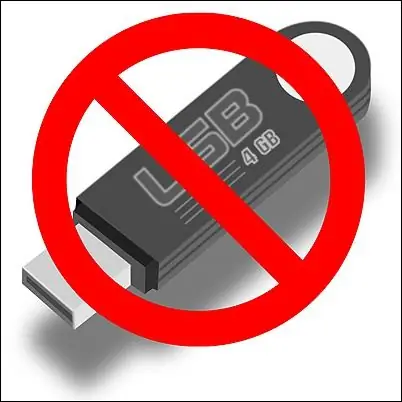Information leakage using removable media is one of the security threats. To prohibit the recording of confidential information on various drives, you can use the tools of the operating system or specialized programs.

Instructions
Step 1
Option 1. Prohibiting writing and blocking drives by means of Windows. With the help of some changes in the registry, you can easily prohibit copying any information to a USB flash drive. You can make it so that Windows will not see the removable disk at all.
Start -> Run -> regedit
Go to the registry: HKEY_LOCAL_MACHINESYSTEMCurrentControlSetControlStorageDevicePolicies
If the StorageDevicePolicies section is missing, then create it.
Then look at the WriteProtect parameter. If it does not exist, then you need to create it (type dword). With the value of the WriteProtect parameter:
1 - read mode (readonly);
0 - recording mode.
Set the desired value and check if everything should work.
Go to the registry: HKEY_LOCAL_MACHINESYSTEMCurrentControlSetServicesUSBSTOR
Find the Start parameter.
Set the value of the Start parameter:
4 - blocking USB drives;
3 - normal mode without blocking.
Step 2
Option 2. Blocking USB ports using special programs. These programs do not affect the operation of devices such as: mouse, camera, printer, speakers. For example, you can use the USB Port Locked program. It is very easy to use. It blocks usb ports. When trying to connect, the computer will not display the drive. When using the program, it will be impossible to connect and work with drives. Also, you can use the ToolsPlus USB KEY program. It locks the removable disk by protecting it with a password. When you try to connect a removable storage device, the computer will ask for a password. If the user enters the wrong code, the drive will turn off. This program is very convenient for use in educational institutions. With the help of the USB LOCK AP 2.3 program, you can lock not only USB, but also the CD-ROM. Access to such programs is password protected.






